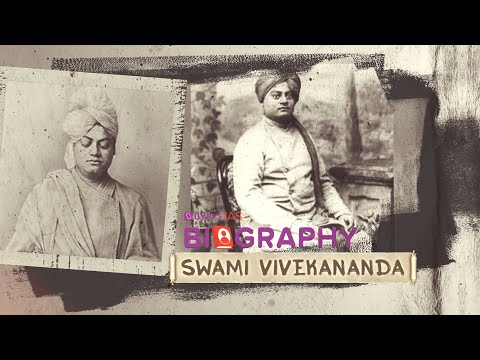NCERT notes on important topics for the UPSC Civil Services Exam. These notes will also be useful for other competitive exams like banking PO, SSC, state civil services exams and so on. This article talks about Swami Vivekananda.
Candidates can also download Swami Vivekananda notes PDF from the link provided below.
| The UPSC Previous Years’ Question Papers page will give you a general idea about the kind of questions asked in the UPSC Exams!! Visit the page now:
The following links will help strengthen your UPSC preparation: |
Swami Vivekananda (1863 – 1902)
- Born as Narendranath Dutta in Calcutta in January 1863.
- Was influenced by Ramakrishna Paramahamsa who became his Guru.
- Became a monk and travelled all over India and the West.
- His writings and speeches did a lot to spread Hindu philosophy in the West especially Advaita Vedanta and Yoga philosophies.
- In 1886, he formally accepted monastic vows.
- He established many Mathas in India the most important being the Belur Math in Belur, Howrah district.
- He founded the Ramakrishna Mission in May 1897.
- He died in 1902 in Belur Math in West Bengal.
- Swami Vivekananda is credited with introducing the West to the Indian philosophies of Vedanta and Yoga.
- He worked in the field of social service.
- He spoke to people in India and urged them to eliminate the caste system and promote science and industrialisation.
- He also inspired many people to join the freedom struggle, thereby contributing to the rise of the national independence movement.
- He urged the youth of the country to fight colonial oppression, do social service and work for the people in unity.
- His teachings opened up interfaith debates and interfaith awareness.
- He also worked against superstitions and advocated the upliftment of women’s position in society.
- He wanted the people to embrace the spirit of equality and free-thinking.
- His interpretation of Vedanta is called neo-Vedanta.
- He worked towards a better understanding of Hinduism and also towards nationalism.
- According to him, the best form of worship was the service of the people.
- He laid stress on physical and moral strength. One of his many quotes says, “You Will Be Nearer To Heaven through Football than through the Study of the Gita.”
- The four pillars of nationalism according to Swami Vivekananda are:
- Consciousness and pride in the ancient glory of India.
- Development of moral and physical strength.
- Awakening of the masses.
- Unity based on common spiritual ideas.
Swami Vivekananda’s birthday, January 12th is celebrated as National Youth Day in India.
Swami Vivekananda (UPSC Notes):- Download PDF Here
UPSC aspirants can also refer to the video given below based on the life, achievements and contributions of Swami Vivekananda:

Frequently Asked Questions about Swami Vivekananda
What is Swami Vivekananda known for?
What was Swami Vivekananda’s contribution regarding the perception of Hinduism?
Also Read | NCERT Notes: Raja Ram Mohan Roy – Indian Social Reformer
For more UPSC related preparation materials and articles, visit the links given in the table below:
Related Links
| UPSC FAQ | UPSC Monthly Current Affairs Magazine | NCERT Notes For UPSC |
| UPSC Age Limit | APPSC Notification | Lord Wellesley |
| KPSC Exam | Bharatmala | MPPSC Result |
Comments